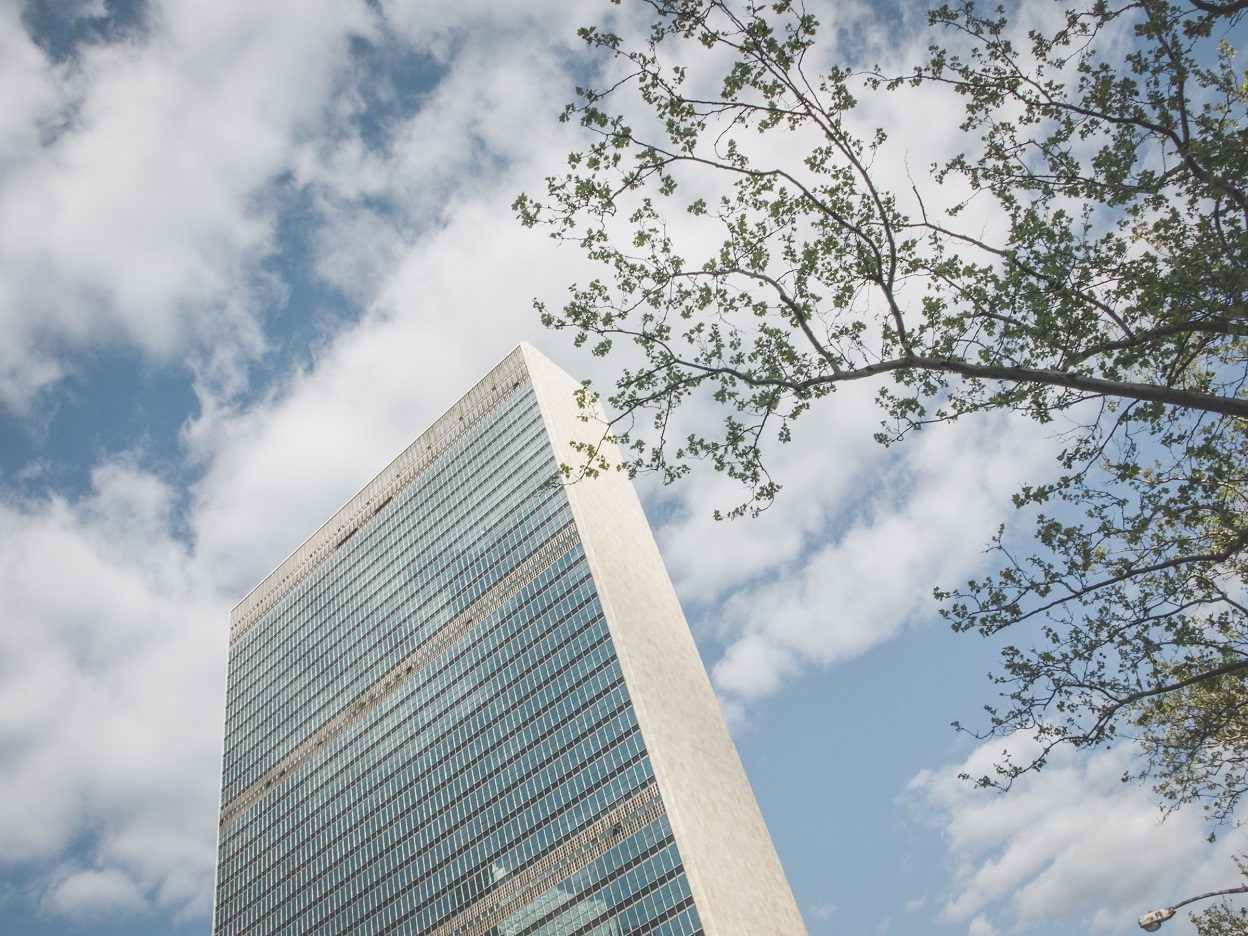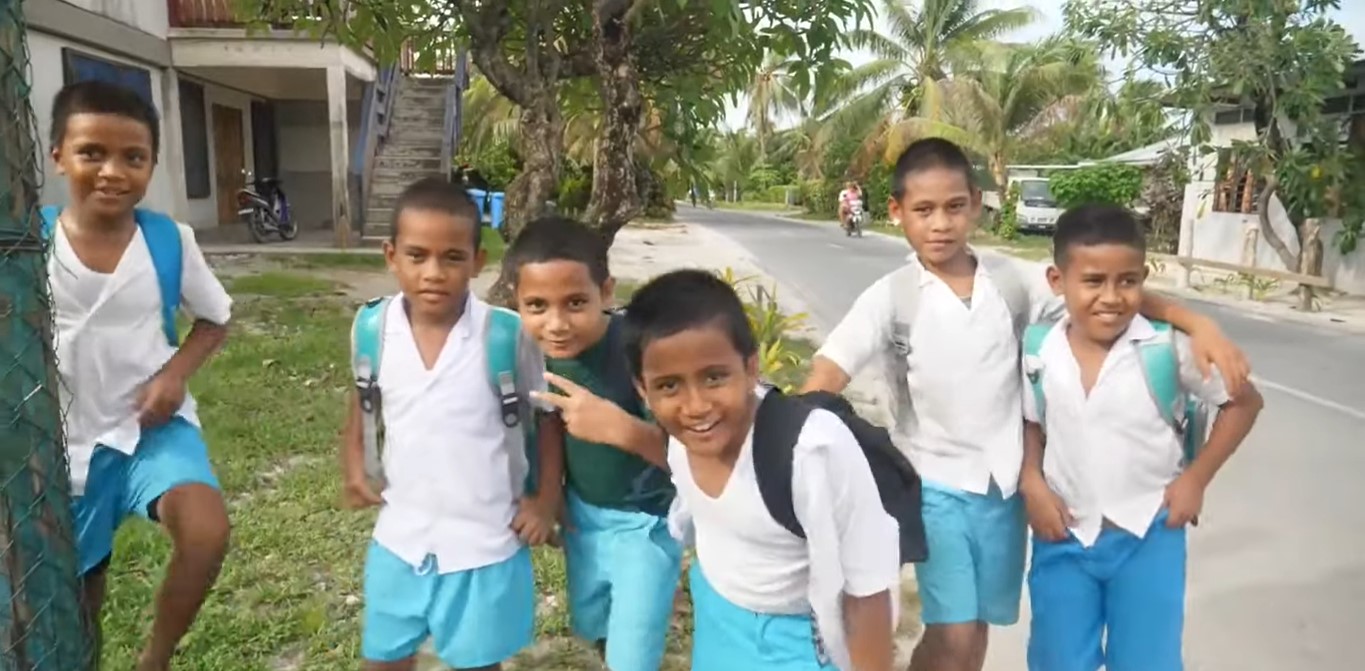Dr. Alesana Seluka Of Tuvalu And Her 2002 U.N. Speech
Dr. Alesana Seluka’s Tuvalu U.N. speech declares the country’s vow to uphold children’s basic rights. It also cited the important role of family and culture.
Jane RestureNov 09, 20231265 Shares46863 Views

In 2002, a TuvaluU.N. speechwas delivered in reference to safeguarding children’s fundamental rights.
Dr. Alesana K. Seluka, Tuvalu’s then-minister of education and sports and minister of health, delivered the said speech at the 27th Special Session of the General Assembly: Children held in New York on May 8-10, 2002.
Dr. Seluka’s U.N. Speech
Mr. President, Your Excellencies, Ladies and Gentlemen:
I am delighted and honored to participate and speak, on behalf of the Government and people of Tuvalu at the U.N. General Assembly Special Session on Children.
Tuvalu is committed to the fundamental rights of the child as enshrined in the Bill of Rights within the Constitution of Tuvalu and, likewise to the Convention on the Rights of the Child to which it acceded in 1995.
Consistent with the principles contained therein, Tuvalu wishes to endorse the outcome document of this Special Session, which shall provide a solid framework towards achieving the goals of the Convention and of the U.N. Millennium Declaration.
In Tuvalu, as in other Pacific Island societies, we value the fundamental importance of family and culture to the upholding of primary responsibility for the protection, upbringing and development of children.
We therefore need to not only recognize the important role played by family and traditions, but also to consider means to strengthen these traditional institutions and practices by rendering appropriate assistance to parents, families, and communities so that children can grow and develop in a safe and stable environment, and in an atmosphere of happiness, love, and understanding.
Mr. President:
Significant progress has been achieved in the promotion of child welfare in Tuvalu since the World Summit for Children in 1990.
In the area of health, improved programs on maternal-child health and immunization have resulted in reduced infant and under-five mortality rates as well as better access to drinking water and sanitation.
Despite the progress made, a number of challenges remain.
Most seriously is the urgent need to improve quality medical services. The acute need for overseas patient referrals is adding strain to our meager financial resources.
This is further aggravated by the high cost of medical supplies, especially vaccines. We believe that a regional approach towards the procurement of pharmaceuticals would be more cost-effective.
The HIV/AIDS pandemic is of great concern to my country.
The incidence of HIV/AIDS is highest among our seafarers who have gone overseas to work on merchant boats and are contracted with the killer virus abroad.
Although our small economy has greatly benefited from the income earned and remitted back home by our seamen, it is through this particular group of our community that Tuvalu is exposed to the HIV/AIDS threat.
Many of these seafarers have families, including children to take care of at home, and one can imagine the devastating impact this will have on families of those who return home with the killer virus.
We share the urgent need to combat this killer disease, particularly on measures to reduce the incidence of HIV/AIDS among the more vulnerable groups, including children and seafarers.
We therefore welcome the establishment of a global fund to combat HIV/AIDS as agreed to at the last UN Special Session.
Mr. President:
Universal access to basic education is a key priority for Tuvalu, and significant progress has been made. However, we are concerned about the decline in the quality and standards of education in our schools.
This decline is linked to a combination of factors, particularly the inadequacy of human and financial resources.
To address these issues, a national education forum will be convened later this year and to be followed by a round table meeting with development partners to determine appropriate actions.
The progress achieved in these areas has been made possible through the support of donors and the UN and its specialized agencies to which we extend our appreciation.
In addition, international and regional cooperative arrangements in certain areas have provided Small Island Developing States such as Tuvalu with more cost-effective programs.
In education, for example, the University of the South Pacific based in neighboring Fiji provides Tuvalu with tertiary educational opportunities, as Tuvalu cannot afford to run a university all on its own, given its size and resources.
These institutional cooperative arrangements at the international and regional levels need to be recognized and further strengthened, in order to complement national development efforts, particularly for small island nations such as Tuvalu, which suffer greatly from the lack of resources and economies of scale.
Mr. President:
A country that has also been active in the promotion of the rights and welfare of children in many parts of the world but which is excluded from the United Nations and its agencies is the Republic of China on Taiwan.
This contribution by the R.O.C. needs to be properly acknowledged and recognized.
We hope that the international community will support the R.O.C. in its resolve to participate in the work and activities of the United Nations designed to promote the rights and welfare of children.
Mr. President:
The security along with the future well-being of the children of Tuvalu, like many low-lying Small Island Developing States, will be seriously compromised by the impact of globalization and the threats of climate change and sea level rise.
Tuvalu’s capacity to cope with and to take full advantage of opportunities offered by globalization is severely limited.
Our children need assistance to develop their full potential to be able to participate meaningfully in a globalized world.
The vulnerability of Tuvalu to the effects of global warming, particularly sea level rise, deserves urgent action. It must be considered on humanitarian grounds.
In the event that rising seas, as reported by the Intergovernmental Panel on Climate Change (IPCC) and others, submerge our islands, we would inevitably become environmental refugees in our own land.
Where then is the security and future of our children?
We appeal to the international community, particularly the industrialized nations to take immediate actions to save our world from the ominous impact of global warming.
Mr. President:
The implementation of the Declaration and Plan of Action for Children requires renewed political will and commitment if this Special Session is to succeed in truly creating a world fit for children.
Within its capacity, Tuvalu will exert its efforts to achieve these goals for the benefit of children.
I thank you, Mr. President.
Dr. Seluka concluded her Tuvalu U.N. speech with words from her native language: “Tuvalu mote Atua(“Tuvalu for God”).”
Jump to
Latest Articles
Popular Articles
